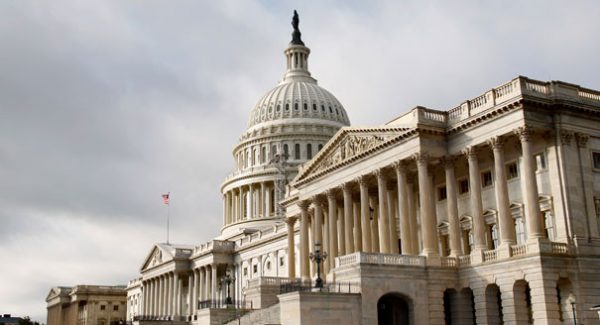Washington Congressional Reps. Cathy McMorris Rodgers (R-05) and Rick Larsen (D-02) last week introduced the Rural Veterans Travel Enhancement Act to assist veterans living in rural communities get to their medical appointments.
The bill is designed to provide transportation services and travel reimbursement to veterans so they can more easily travel to Veterans Affairs (VA) medical facilities.

The Morning Wire: Keeping you informed on politics, policies, and personalities of Washington State.
“Traveling to and from VA medical centers is one of the most challenging obstacles for veterans to overcome in rural Eastern Washington, and it often results in missed appointments for health care services,” said Rodgers in a statement.
As of 2019, only one-quarter of veterans received health care from the VA, according to the Washington State Department of Veterans Affairs. The state is home to more than 112,000 veterans who live in rural areas. In these areas, veterans face higher unemployment rates with fewer job, training and transportation options as compared to those offered in urban areas.
VA medical centers and health care systems are spread out in Washington State, and generally situated in or near large cities. In Western Washington, veterans need to drive to Seattle, Lakewood or Vancouver to access medical centers or systems. In Eastern Washington there are medical centers in Spokane and Walla Walla.
The act requires a Government Accountability Office report on how effective the current mileage reimbursement amounts are.
Mileage reimbursements for veterans’ Beneficiary Travel benefits for health care visits haven’t increased since 2010 when it was set at 41.5 cents per mile, after a $6 round trip deductible. This 2021 General Services Administration mileage reimbursement rate is 56 cents per mile with automatic yearly increases.
The act would make two initiatives which provide veterans with transportation services and reimbursement permanent. It also streamlines the certification process for volunteers who transport veterans to appointments.
Specifically, the act would do the following:
- Permanently enable the VA to transport veterans and eligible beneficiaries to VA facilities for care, including vocational rehabilitation, mental health care, and counseling through the Veterans Transportation Service (VTS) program.
- Make permanent the Highly Rural Transportation Grant, which gives local VA facilities the ability to partner with Veteran Service Organizations and state veteran service agencies to assist with transporting veterans to and from appointments. Establish a five-year, five-site pilot program expanding the transportation reimbursement program by easing the burden on low-income veterans, making it possible for veterans to access reimbursements two days in advance of confirmed medical appointments.
- Create a pilot program to help veterans in rural, highly rural, or Tribal areas travel to access resources provided by Vet Centers.
- Require the VA to establish a pilot program for state, county, Tribal, and city governments to improve public transportation connections to enhance access to facilities serving veterans.
Companion legislation has been introduced by Sen. John Tester (D-MT) and Jerry Moran (R-KS).
Your support matters.
Public service journalism is important today as ever. If you get something from our coverage, please consider making a donation to support our work. Thanks for reading our stuff.



